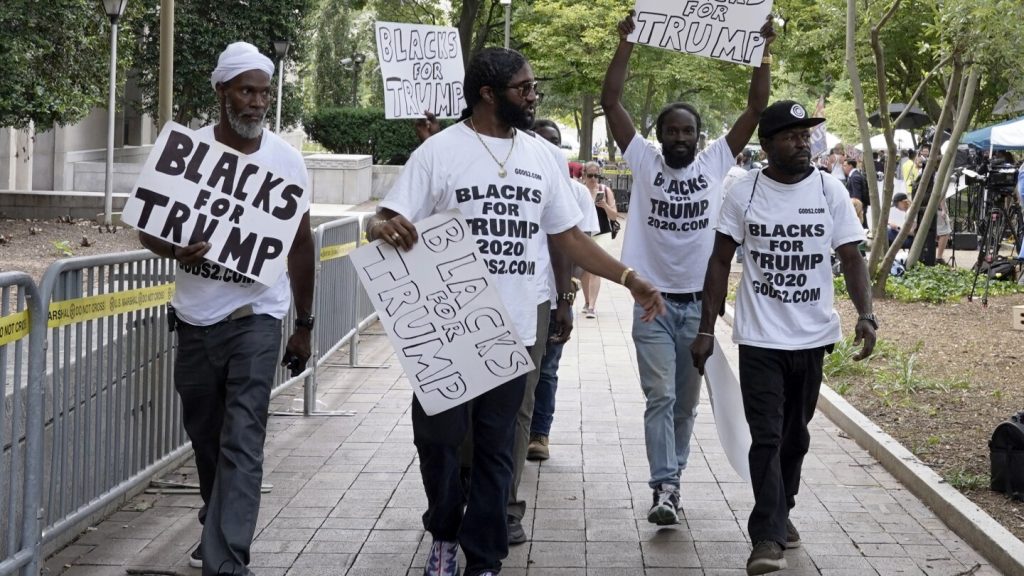The 2024 election saw a significant shift in voter demographics, with a growing number of young Black and Latino men showing support for former President Donald Trump. Many cited Trump’s economic policies and outreach to minority communities as reasons for their votes. This shift was particularly notable among voters under the age of 45, with about 3 in 10 young Black men and roughly half of young Latino men voting for Trump. These voters prioritized the economy and jobs, reflecting a belief that Trump’s policies had a positive impact in these areas.
The results of the election underscored the impact of Trump’s messaging on the economy, with Latino men responding positively to his populist message. While Vice President Kamala Harris won majorities of Black and Latino voters overall, Trump’s gains among these groups, particularly among younger men, played a significant role in the outcome. The shift in priorities from 2020 also highlighted a focus on economic issues, as well as concerns about inflation, wages, and immigration reform.
For many young voters, like 20-year-old Alexis Uscanga, the economy and immigration were key issues that influenced their decision to vote for Trump. Rising costs and a sense of economic stability under the Trump administration led Uscanga to support the former president, despite initial reservations about his rhetoric. The desire for strong leadership and a perceived lack of progress in the economy also played a role in shaping these voters’ preferences.
The election results reflected a broader trend of men of color, particularly younger men, emerging as swing voters in national elections. Terrance Woodbury, co-founder of HIT Strategies, highlighted the shifting dynamics of voter demographics, with men of color showing less ideological ties to a single party and being more open to swinging between parties or in and out of the electorate. The appeal of Trump’s leadership style also resonated with many voters, with a majority nationally seeing him as a strong leader.
While Trump’s gains among Black and Latino men were significant, his victory would not have been possible without the support of a majority of white voters. The election results underscored the complex dynamics of race, gender, and leadership that played a role in shaping voter preferences. Overall, the emergence of men of color as key swing voters points to a changing landscape in national politics, with a focus on economic issues and strong leadership shaping voter decisions.


